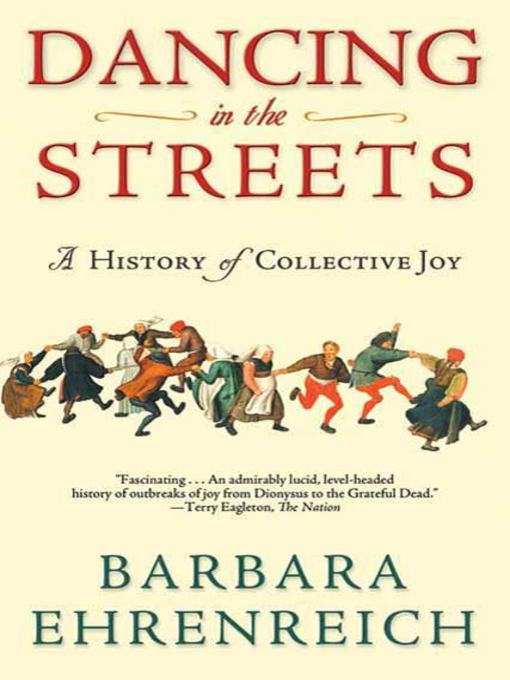
Dancing in the Streets
A History of Collective Joy
فرمت کتاب
ebook
تاریخ انتشار
2007
نویسنده
Barbara Ehrenreichناشر
Henry Holt and Co.شابک
9781429904650
کتاب های مرتبط
- اطلاعات
- نقد و بررسی
- دیدگاه کاربران
نقد و بررسی

March 26, 2007
Ehrenreich's social history of collective joy, ranging from pagan ritual to rock concerts, comes off as an extended, rambling lecture, taking in a varied array of subjects along the way. Taking the hint, Ward reads Ehrenreich's book with a touch of the lecturer's oratorical savvy, and some of that same figure's dry deliberation. Ehrenreich argues that communal ecstasy has been too often misunderstood as an excuse for booze-fueled sexual bacchanalias, ignoring its political and social components. Ward is neither overly joyous in her reading, owing too much to the nature of her material, nor overly serious, her voice tinged with the slightest hint of charmed pleasure at the prospect of declaiming on Ehrenreich's chosen subject. The unabridged audio is not overlong as audiobooks go, but there are moments where Ward's reading drags ever so slightly, pulled down by a sameness of approach that threatens to inspire the opposite of the ecstatic moments Ehrenreich's book describes. The solid quality of Ehrenreich's prose papers over the gaps and gives Ward's reading the pleasurable (if not quite monumentally joyous) sensation it possesses. Simultaneous release with the Metropolitan Books hardcover (Reviews, Nov. 6).

Starred review from November 6, 2006
It is a truism that everyone seeks happiness, but public manifestations of it have not always been free of recrimination. Colonial regimes have defined spectacles as an inherently "primitive" act and elders harrumph at youthful exultation. Social critic and bestselling author Ehrenreich (Nickel and Dimed
) teases out the many incarnations of sanctioned public revelry, starting with the protofeminist oreibasia
, or Dionysian winter dance, in antiquity, and from there covering trance, ancient mystery cults and carnival, right up to the rock and roll and sports-related mass celebrations of our own day. "Why is so little left" of such rituals, she asks, bemoaning the "loss of ecstatic
pleasure." Ehrenreich necessarily delineates the repressive reactions to such ecstasy by the forces of so-called "civilization," reasonably positing that rituals of joy are nearly as innate as the quest for food and shelter. Complicating Ehrenreich's schema is her own politicized judgment, dismissing what she sees as the debased celebrations of sporting events while writing approvingly of the 1960s "happenings" of her own youth and the inevitable street theater that accompanies any modern mass protest, yet all but ignoring the Burning Man festival in Nevada and tut-tutting ravers' reliance on artificial ecstasy. That aside, Ehrenreich writes with grace and clarity in a fascinating, wide-ranging and generous account.

























دیدگاه کاربران